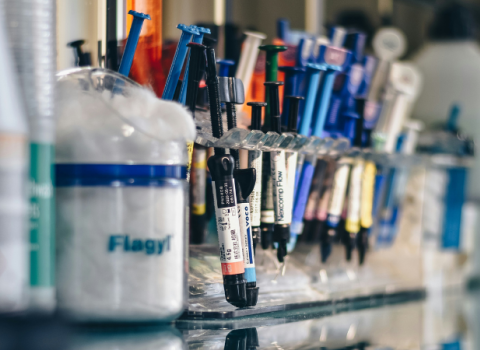The Norwegian Government is weighing a Euro 300M rescue package for the biotech industry as part of a national financial rescue package it is due to announce by the end of January.

The Norwegian Government is weighing a €300 million rescue package for the biotech industry as part of a national financial rescue package it is due to announce by the end of January.
The plan was put together by the academic institutes, hospitals and businesses that form the Oslo Cancer Cluster. With over 50 percent of the country’s 25 oncology-related biotech companies expecting to face liquidity problems over the next 12 months, the cluster pulled together a think tank of financial and industry experts to draw up the package and put it to the government.
The €300 million package calls for three main measures: a doubling of the size of the existing Governmental Innovation Loan Fund; the formation of new BioMedical growth and seed funds; and an extension of R&D tax breaks.
“The entire Norwegian life science sector, not just oncology, is at a critical stage,” says Bjarte Reve, the CEO of Oslo Cancer Cluster. “Therefore we are urging the government to step in and adopt our crisis package, both to safeguard the progress made so far and to stimulate further development.”
He added, “A recent report by the Boston Consulting group highlighted potential for life sciences to grow to €8 billion by 2015, making it a significant sector in the Norwegian economy.”
The key measure proposed is the provision of an additional €175 million in Bio-Innovation loans through Innovation Norway. These are available to any life science company, private or listed, and repayable with interest against set milestones, typically Phase 1 or Phase II results.
In addition, the Oslo Cancer Cluster proposes establishing a new €100 million Bio Innovation Growth Fund. This would be a so-called evergreen fund, a 50:50 partnership between government and private VCs. A similar fund exists in Sweden and is highly successful, allowing for exits at various stages of company development. The third measure is a €30 million seed fund, with co-investors, along the lines of an existing model in Denmark. Finally the existing R&D tax credit scheme should be extended to any company up to 8 years old investing over 15 percent of turnover into R&D
“We have already presented the package to the government emphasising that it will benefit the whole sector, not just oncology. We also have, for example, excellent companies in marine bioprospecting, biobanking, medtech and immunology. It is now being discussed in cabinet and we are optimistic about a positive decision by the end of January,” said Reve.





 A unique international forum for public research organisations and companies to connect their external engagement with strategic interests around their R&D system.
A unique international forum for public research organisations and companies to connect their external engagement with strategic interests around their R&D system.